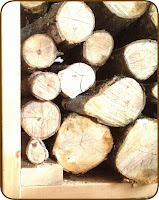Growing as human beings, we experience life changing events throughout our lives.
We hope that most are happy experiences with positive outcomes. Change takes many forms.
Personality, character, and virtue are all built by experience. We are what we have done and what has happened to us. Fate is truly as delicate and fragile as gossamer thread.
When I was in high school, I chose to study the German language. It is part of my ancestry yet no one spoke the language in my family. The school offered it so it was a good choice as an elective course.
Being part of that program, I was offered the opportunity to participate in an exchange program.
I would be matched up with a student in Germany. He would come to live with my family for three months. After three months, I would go to Germany to spend three months with him and his family.
There was an extensive application process where many factors were considered; including an at home interview with my family.
I didn't appreciate it then, but there would also have been a considerable amount of money required for travel expenses and pocket money abroad. I know now that it was a serious investment by my parents.
For that I am eternally grateful.
Once the application was processed, I was matched up.
The application included a lengthy survey of my likes and interests. I don't know how exactly the matches were made, but in hindsight, the result was far deeper than superfluous similarities.
I remember being taken from my classroom to be informed of my acceptance to the program.
I was overjoyed. So much so that I hugged my French teacher (who was the program liaison).
I had a lot of time to consider the exchange, but there was an ample package of information about my match, so I could pore over the basic biography of the boy and the family that I would be living with.
If there was anything that we didn't have in common, it was the superfluous similarities.
On the surface, we were very different. We didn't hang around much together at school. We dressed very differently. Our mannerisms, outlook, and behavior were very different. Yet, we shared a lot of time together on the weekends and evenings. We had some fun experiences. We were both reckless at times.
Those were formative days.
It wasn't until years later that I realized that we were quite a bit like each other. The surface traits were vastly different, but on a fundamental level, we were very much alike.
Oliver came back to visit us several times after the exchange. There were also many friends he had made that he came to see. Being on different continents can have a disintegrating effect on a relationship, but when the ties run deeply, time becomes meaningless.
During the mid-nineties, I returned to Europe for long backpack trip. I spent one month of that in Germany with my original host family. Oliver was living elsewhere at the time, but still close enough to visit frequently.
After that, we lost contact. In truth, I lost meaningful contact with all of my old friends.
This year, I was convinced to give up my fear and distrust of Facebook.
Within a few days of signing up, I had heard from virtually all of my old friends, including Oliver.
Oliver actually called me on the phone right away. He really hadn't known where I had gone and what was going on in my life. Though, he was caught up in his own life like everyone is.
I expected the conversation to be comfortable. Having a bond that transcends time and experience makes it easy to reconnect with a person as if there were only a few days since parting ways. Indeed, the conversation, heard by someone else, would give no allusions as to the time passed since we'd last spoke together.
 |
| You'll only see him smiling in candid shots! |
The last few days here at home has seen some Spring cleaning. Among the jobs was building a shelf to hold old photo albums that had been relegated to the back of a closet or under a bed. Not really to make the photos more accessible, but to eliminate the clutter. Of course, once out, it's hard to resist a look inside.
Oliver had recently been lamenting the effects that corporate lifestyle has had on him.
I thought that I would send him a nice photo to help him recall simpler times.
I used Facebook as the forum. I was surprised by the attention the photos received. Some of the attention was not necessarily flattering.
I apologized to Oliver for having caused a little ruckus at his expense.
But he is only too happy to be reminded of his more youthful days.
 |
| One of his favourite cars. |
One of my concerns with Facebook is the chance that you may spend too much time looking to the past at the expense of the present and future.
Certainly a balance must be struck.
However, I think that is equally unhealthy to dispense with the past and focus solely on the present and future.
Our past is our roots. Our roots have contributed directly to whom we have become and will be.
It's important to reach back and remember where we came from. It contributes to the cohesion of our Selves.

There are also strong relationships.
Relationships that have been neglected, through distraction and circumstance.
Oliver is my brother.
I am who I am, in part, because of him.
I am grateful to him for that.
I am thankful that I still have the opportunity to connect with him.























